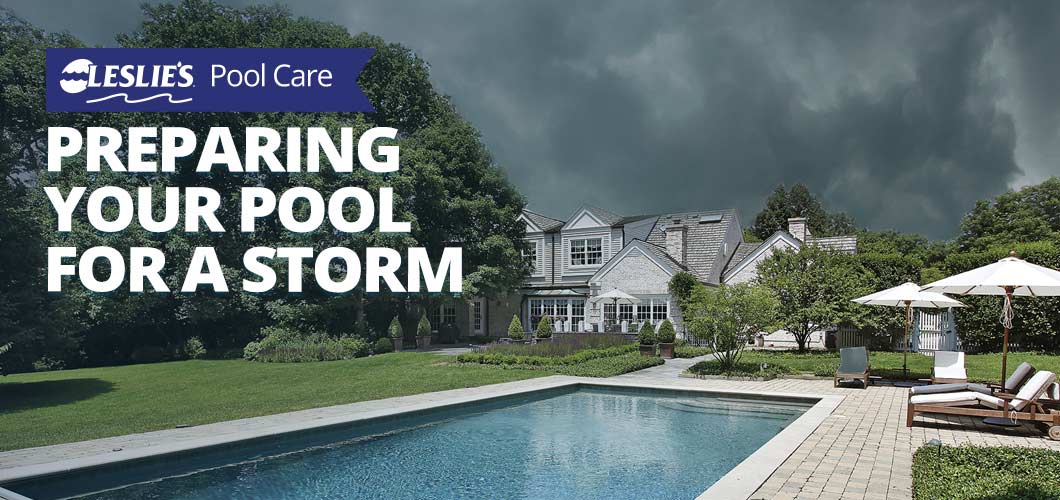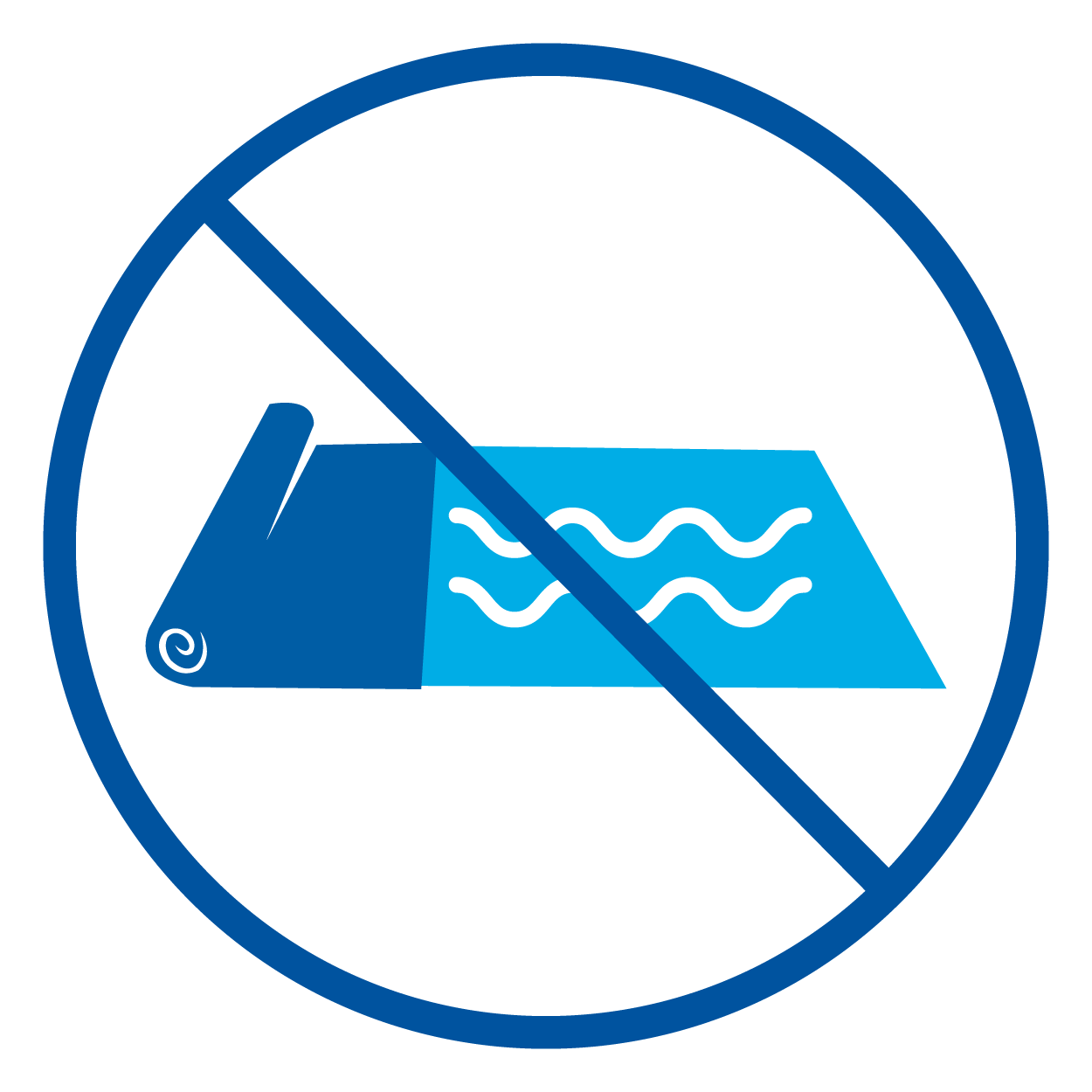
Preparing Your Pool for a Storm
Storms can be amazing. They're fascinating to watch, can provide much-needed precipitation, and usually leave behind fresh, clean air. But they can also be destructive and result in quite a mess, especially when it comes to swimming pools. How do you prepare your pool for a storm?
Storms can cause your pool to be contaminated with debris, such as dirt, mud, silt, and bacteria. Although there is no way to keep your pool debris-free when a storm rolls through, there are a few things a pool owner can do before a storm to protect their pool and equipment from damages, as well as potential bacteria and algae growth. We’ve put together a few guidelines to help you prepare the pool next time the forecast calls for a storm.
Key points include:

Don't drain your pool.

Leave your pool uncovered.

Balance your water and add algae controller.

Trim branches and limbs from nearby trees.

Turn off the power to pool equipment.
Don't Drain Your Pool Water
You might have the urge to remove water from your pool as you prepare for a storm. You might do this to prevent the pool from overflowing and the water from becoming contaminated. However, you'll actually cause more harm than good if water is drained from the pool. Draining your pool leaves the pool walls and floor unprotected, susceptible to scratches or damage by flying debris. More importantly, a pool without water can potentially pop up and “float” on a rising water table.
Keeping the water inside your pool, despite the contamination after a storm, will provide an easier cleanup.
Leave Your Pool Open
When preparing your pool for a storm, leave it uncovered. Installing any kind of cover across the pool will not do much to protect against dust and contaminants, because storms often bring strong winds and heavy rain that can cause the cover to lift off your pool. Also, placing your cover over your pool leaves it vulnerable to punctures and tears from sharp branches and other debris during a storm.
DIY TIP: By keeping the cover off your pool during a storm, you'll prevent unwanted cover damage. You'll also avoid dealing with a difficult removal if the cover is full of water and debris. An uncovered pool will be able to fend for itself!
Balance and Control Pool Water
During a storm, it's inevitable that dirt, debris, and other contaminants will find their way into your pool. You'll most likely need to shock and rebalance your pool after severe weather strikes. However, you can do plenty to prepare the pool by balancing the water. Adding an algae controller to the water before severe weather can save you a lot of extra work after the storm has subsided.
By balancing your pool chemistry and adding Leslie’s Algae Control to the water, most of the organic contaminants that blow into your pool can be easily managed. Any microscopic contaminants that remain in your pool after the storm will be destroyed when you shock the pool.
Prepare Your Pool for Storms With Some Routine Cleanup
If you have time to prepare your pool area before the storm, remove as many toys, pieces of furniture, and other items as possible, and store them in a safe place like a shed, garage, or basement. Much of the damage from a storm is caused by items that could have been stored out of harm’s way.
DIY TIP: Never put objects into the pool to protect them from a storm! Especially if we're talking about patio furniture, putting it in the pool can damage your furniture, and may cause serious metal staining problems for your pool water. It's best to play it safe and store your outdoor items safely indoors during severe weather.
If Possible, Trim Branches from Nearby Trees
If you have time, prepare for a storm by trimming branches and limbs from nearby trees. This will help protect your pool and possibly even your home against damage from falling limbs. Large and overgrown branches can snap off easily and become dangerous projectiles during storms. A little routine maintenance can go a long way — especially when strong winds or storms are in your area.
Turn the Power Off
To prevent potentially dangerous electrical issues, it’s imperative that you turn off the power to your pool equipment, including pump and filter systems, heaters, certain chlorinators, and lighting fixtures. But even if you turn off the power to your pool equipment, it can still be damaged by wind, rain, and debris. To avoid problems, we recommend covering pool equipment with a large plastic tarp or waterproof coverings. Ensure the covering is secured tightly to keep water from getting to the equipment.
Expect the Unexpected
Even if you've thoroughly prepared your pool for a storm, it's almost certain that you'll need to do some cleaning after it rolls through. We've got you covered there, too, with our tips for cleaning up after a storm. No matter what type of natural disaster rolls through, our complete content library can help you recover from any major weather event.
If you have other questions about preparing your pool for a storm, call or visit your local Leslie's to speak with our pool experts. Once the storm is over, we'll be happy to help you get your water chemistry back on track. Just bring us a water sample for a free Leslie's AccuBlue® test and customized water treatment plan.